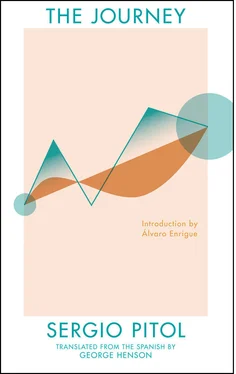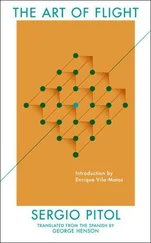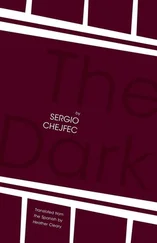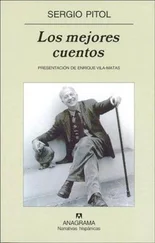BORIS PILNYAK
Mahogany
Ardis, 1993

27 Pitol cites here a translator’s note to the Spanish translation, which employs the Spanish word “ inocentes. ” The note reads: “The ‘innocents’ ( yurodivy ) were fools from birth whom the Russian people considered holy, attributing to their words magical and prophetic meanings.” —Trans.
28 The English translation quoted here includes the following note:
“Ivan Yakovlevich Koreisha (ca. 1780–1861), for many years as inmate of a Moscow institution for the insane; his followers regarded him as a saint and a seer.” —Trans.
29 A note to the English translation reads: “ Moskovskiye Vedomosti ( Moscow Gazette ), a conservative Moscow daily.” —Trans.
30 A note to the English translation reads: “Institution for the insane.” —Trans.
31 A note to the Spanish translation reads: “An ancient commercial district of Moscow.” —Trans.
32 Translated by Vera T. Reck and Michael Green.
The trip is almost over. What a shame! Yesterday I spent a long time sitting on the terrace of the hotel. I made a lot of notes of my stay in Georgia. I went early to the Museum of Fine Arts, just to see the paintings again by Niko Pirosmani, a Georgian painter from the beginning of the twentieth-century, who made a living painting signs for stores, workshops, restaurants, and taverns. Compared to Georgian painting of the period, he is head and shoulders above the rest. But not just in Georgia, his paintings would stand out no matter where they were. He was a great painter, but he never knew it. Sometime in the twenties, old, alcoholic, poverty-stricken, he was discovered by some connoisseurs of art. His most notable paintings revolve around the supra , that passion of the Georgians: tables filled with delicacies, wine bottles, dinner guests in ceremonial attitude, like sculptures of themselves, and the small Jewish orchestra at the bottom or to the side. The outlines are powerful; the lines are broad and are one of the most important parts of the structure. Immediately after, I was taken to the airport, and at four in the afternoon, I was walking the streets of Moscow. The return has been sensational. Midsummer, 93 degrees. Last night, I took a stroll through the city center for several hours. This morning the same. I was looking for the house where Dr. Chekhov also saw patients. I got lost, took another route and arrived in the old neighborhood of my old embassy; it was more than worth it. It is a place where art nouveau villas abound — meticulously maintained precisely because they host embassies. I passed the International Bookshop opposite the Italian Embassy — lots of books in Spanish in the windows, most from Seix Barral. Under this sun, I’ve almost regained color. Fascinating city steeped in literature, only suitable to be appreciated by the person who has returned. I remember Pepe Donoso’s excitement when we met beside St. Basil’s years ago. And the surprise that I felt when he told me that he felt better here than in Leningrad. Leningrad, on that we both agree, is a city built all in the same period, governed by a unique architectural canon, which imprints on its beauty an unspeakable monotony, an artificiality that lacks the mysteries of Venice, Prague. “Having seen the inside of St. Isaac’s,” Pepe tells me, “says it all, it revealed another city to me. The emptiness of power.” I am so happy to be back! To see and feel the beginning of this resurrection. The city’s progress is evident in its cleanliness. They have restored many buildings during my absence and publishers are translating more. Books that just five years ago seemed impossible to imagine in Russia are being published. Musil’s The Man without Qualities , Woolf’s Mrs. Dalloway and To the Lighthouse, Brideshead Revisited , by Evelyn Waugh, The Sleepwalkers , by Hermann Broch. Clearly, a new thaw has begun. It’s a shame that the same intensity is not present in the fields of Hispanism and Latin-Americanism, one doesn’t notice the same intensity! Apparently our literatures do not possess such capable defenders. Inna Terterian, who just died, has written the prologue to the works of Borges. That leaves Vera Kuteishchikova. Maybe there are new young ones I don’t know. For now, our literature’s time has not yet come, but it is coming. Hopscotch will soon appear, as will the Borges volume. In the hotel, I saw on television the opening of the World Cup of Soccer. Our president wasn’t allowed to speak; he was interrupted by a vociferous public that shouted over him. I’m making a list of characters in my novel. Three or four groups of families. They all have brothers and sisters, I don’t know why, but the plot requires it. Reading Gogol is indispensable. It will be the novel’s backbone. Gogol, his biographers, his characters…The key figure has to be the woman, the widow of the anthropologist studying indigenous festivals in Mexico. And I’ve decided that her existential adversary is an academic who epitomizes all the human miseries I detest: avarice, pettiness, inauthenticity, and other things of this tenor; and that he is (inconceivably) a fan of Gogol. I view it as a tribute to the author of The Nose and The Diary of a Madman .
“Some twenty years later, I undertook a journey to Lausanne, in order to find the old Swiss Lady who had been first Sebastian’s governess, then mine. She must have been about fifty when she left us in 1914; correspondence between us had long ceased, so I was not at all sure of finding her still alive, in 1936. But I did. There existed, as I discovered, a union of old Swiss women who had been governesses in Russia before the revolution. They ‘lived in their past,’ as the very kind gentleman who guided me there explained, spending their last years — and most of these ladies were decrepit and dotty — comparing notes, having petty feuds with one another and reviling the state of affairs in the Switzerland they had discovered after their many years of life in Russia. Their tragedy lay in the fact that during all those years spent in a foreign country they had kept absolutely immune to its influence (even to the extent of not learning the simplest Russian words); somewhat hostile to their surroundings — how often have I heard Mademoiselle bemoan an exile, complain of being slighted and misunderstood, and yearn for her fair native land; but when these poor wandering souls came home, they found themselves complete strangers in a changed country, so that by queer trick of sentiment — Russia (which to them had really been an unknown abyss, remotely rumbling beyond a lamplit corner of a stuffy backroom with family photographs in mother-of-pearl frames and a water-colour view of Chillon castle), unknown Russia now took on the aspect of a lost paradise, a vast, vague but retrospectively friendly place, peopled with wistful fancies. I found Mademoiselle very deaf and gray, but as voluble as ever, and after the first effusive embraces she started to recall little facts of my childhood which were either hopelessly distorted, or so foreign to my memory that I doubted their past reality.”
VLADIMIR NABOKOV
The Real Life of Sebastian Knight
New Directions Publishers, New York, 1941
Tuesday, my last day in the USSR. I don’t know whether it’s a holiday, at least for the schools; I seem to be seeing more young people in the street than the day before yesterday, Sunday. Before breakfast I packed my luggage; all that’s left is to go back later and pack my medicines, some books, the notebooks I’ve written in these past days. I walked a little, and visited secondhand bookshops. The one in the lobby of the Hotel Metropol is still wonderful. I love casual encounters, sitting on the bench of a boulevard or in a square, starting up conversations with gossipy old women whom I barely manage to understand, with young people, smoking a cigarette with them, and then, getting up, leaving them dumbfounded at having met a Mexican for the first time. I arranged a meeting with Kyrim in the bar inside the Metropol, the one that looks like an American film noir set, where the mix of visitors never seems to jibe with the hotel or with Moscow. From the first day I went there, years ago, I was fascinated. Who were those Russians and the eccentric foreigners who landed there? These are the questions that never interest political scientists or Kremlinologists, which is why it always bored me to read them or listen to them while dining with them at an embassy. Of course, years later I can think of some very remarkable exceptions: some extremely brilliant Italians and, above all, two Poles without equal: Ryszard Kapuściński, the most educated, intelligent, and penetrating chronicler of the Soviet world; and K.S. Karol, both extraordinarily talented at musing on the wide range of elements and details, without becoming prisoners to the naked facts, those which, by themselves, very rarely constitute the truth. When I worked at the embassy I had the opportunity to hear correspondents from foreign newspapers talk about Soviet society, as if it were equal to the Stalinist era. Kapuściński and Karol know how to read other signs and therefore propose richer and much more pertinent accounts. It was impossible to convince any “specialist” that beneath the surface they were examining there were different currents fighting among themselves, even in the Kremlin itself, like there were throughout the socialist world, except perhaps in Albania and Romania. Now perestroika has shown them a different storyline and again they understand nothing. Buried beneath a deceptively homogeneous surface were varied interests, alliances that were difficult perceive and phobias and brutal hatreds that assumed a monolithic unit. Kapuściński recently stated in an interview that “people, even before perestroika, were accustomed to expressing themselves with silence, not with words, the places they frequented and those they avoided, the way they looked at something, the neutral words in a commentary had their meaning. Despite the contempt and arrogance towards society, power continued to pay attention to the kind of silence that they practiced.” 33
Читать дальше













